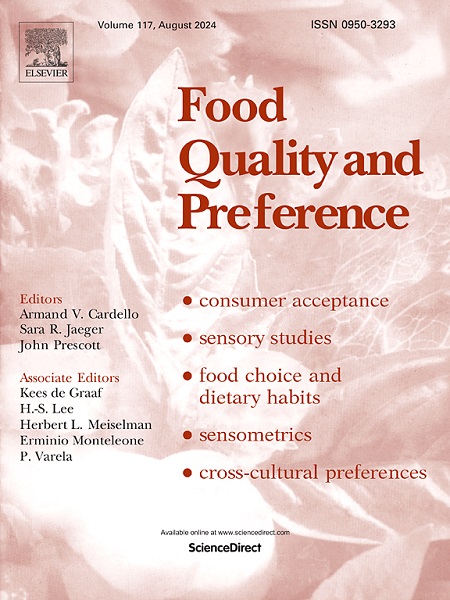Consumer acceptance of edible seaweed in Mexico: An exploratory study on willingness
IF 4.9
1区 农林科学
Q1 FOOD SCIENCE & TECHNOLOGY
引用次数: 0
Abstract
Edible seaweed has attracted much worldwide interest in recent years due to its nutritional and environmental advantages. However, seaweed consumption in Latin American countries remains low and is unknown. This study explores Mexican consumers' acceptance and perception of edible seaweed consumption, highlighting its potential as a sustainable food source. A national survey of Mexican consumers identified key factors influencing attitudes toward seaweed, including familiarity, food neophobia, and concerns about food safety. Despite a growing willingness to consume seaweed, particularly among younger individuals, food neophobia emerged as a significant barrier to acceptance. Additionally, regional differences were found to play a role in the willingness to incorporate this food into daily diets. These findings underscore the need to develop effective educational and communication strategies emphasizing seaweed's nutritional benefits and culinary versatility, which could facilitate its integration into the Mexican diet and contribute to food sustainability in the country.
墨西哥消费者对食用海藻的接受度:意愿的探索性研究
近年来,食用海藻因其独特的营养和环境优势而引起了全世界的广泛关注。然而,拉丁美洲国家的海藻消费量仍然很低,而且是未知的。本研究探讨了墨西哥消费者对食用海藻消费的接受程度和看法,强调了其作为可持续食物来源的潜力。一项针对墨西哥消费者的全国性调查确定了影响对海藻态度的关键因素,包括熟悉程度、对新食品的恐惧以及对食品安全的担忧。尽管越来越多的人(尤其是年轻人)愿意食用海藻,但“新食物恐惧症”成为接受海藻的重大障碍。此外,研究发现,地区差异在将这种食物纳入日常饮食的意愿方面发挥了作用。这些发现强调需要制定有效的教育和宣传战略,强调海藻的营养价值和烹饪的多功能性,这可以促进其融入墨西哥饮食,并有助于该国的粮食可持续性。
本文章由计算机程序翻译,如有差异,请以英文原文为准。
求助全文
约1分钟内获得全文
求助全文
来源期刊

Food Quality and Preference
工程技术-食品科技
CiteScore
10.40
自引率
15.10%
发文量
263
审稿时长
38 days
期刊介绍:
Food Quality and Preference is a journal devoted to sensory, consumer and behavioural research in food and non-food products. It publishes original research, critical reviews, and short communications in sensory and consumer science, and sensometrics. In addition, the journal publishes special invited issues on important timely topics and from relevant conferences. These are aimed at bridging the gap between research and application, bringing together authors and readers in consumer and market research, sensory science, sensometrics and sensory evaluation, nutrition and food choice, as well as food research, product development and sensory quality assurance. Submissions to Food Quality and Preference are limited to papers that include some form of human measurement; papers that are limited to physical/chemical measures or the routine application of sensory, consumer or econometric analysis will not be considered unless they specifically make a novel scientific contribution in line with the journal''s coverage as outlined below.
 求助内容:
求助内容: 应助结果提醒方式:
应助结果提醒方式:


